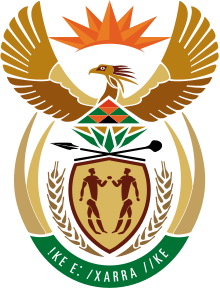- Promotion of Equality and Prevention of Unfair Discrimination Act, 2000
-
Promotion of Equality and Prevention of Unfair Discrimination Act, 2000 
Act to give effect to section 9 read with item 23 (1) of Schedule 6 to the Constitution of the Republic of South Africa, 1996, so as to prevent and prohibit unfair discrimination and harassment; to promote equality and eliminate unfair discrimination; to prevent and prohibit hate speech; and to provide for matters connected therewith. Citation Act No. 4 of 2000 Territorial extent Republic of South Africa Enacted by Parliament of South Africa Date assented to 2 February 2000 Date commenced 1 September 2000 / 16 June 2003 Legislation history Bill Promotion of Equality and Prevention of Unfair Discrimination Bill Bill citation B57—1999 Bill published on 25 October 1999 Introduced by Penuell Maduna, Minister of Justice and Constitutional Development Amendments Promotion of Equality and Prevention of Unfair Discrimination Amendment Act, 2002 The Promotion of Equality and Prevention of Unfair Discrimination Act, 2000 (PEPUDA, Act No. 4 of 2000) is a comprehensive anti-discrimination law enacted by the Parliament of South Africa. It expands on the anti-discrimination provisions of the equality clause (section 9) of the Bill of Rights in the Constitution of South Africa, prohibiting unfair discrimination by the government and by private organisations and individuals as well as forbidding hate speech and harassment. The act specifically lists race, gender, sex, pregnancy, marital status, ethnic or social origin, colour, sexual orientation, age, disability, religion, conscience, belief, culture, language and birth as "prohibited grounds" for discrimination, but also provides that discrimination on other grounds can be unfair if it has similar effects on dignity or equality.[1] Specifically excluded from the ambit of the act is employment discrimination, which is addressed by the Employment Equity Act, 1998.
The PEPUDA is one of three human rights-related acts of Parliament passed in early 2000 that were required by the Constitution to be enacted within three years of its commencement on 4 February 1997. The other two are the Promotion of Access to Information Act (PAIA), dealing with freedom of information, and the Promotion of Administrative Justice Act (PAJA), dealing with justice in administrative law.
References
- ^ "Stand & defend your right to equality!". Department of Justice and Constitutional Development. 2008. http://www.justice.gov.za/EQCact/docs/2008-eqc-brochure.pdf. Retrieved 30 August 2011.
External links
Categories:- 2000 in law
- Discrimination law
- South African legislation
Wikimedia Foundation. 2010.
